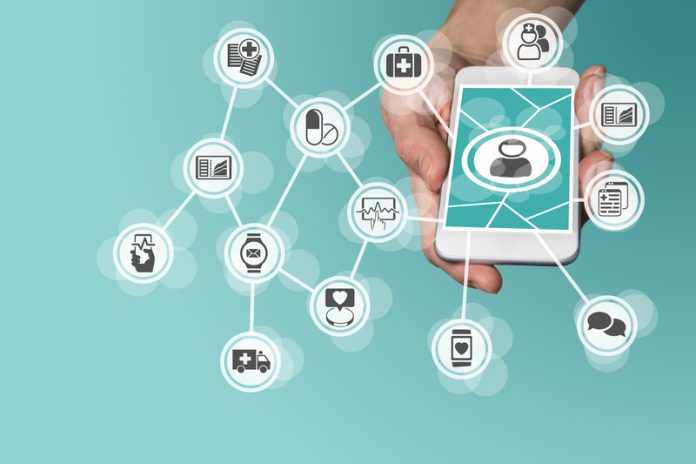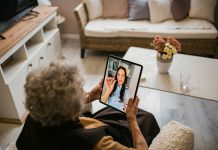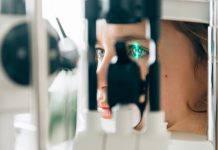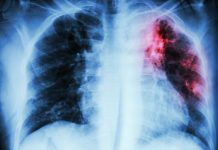Nichola Arathon, Principal Programme Lead at NHS Dorset Clinical Commissioning Group describes how telehealth has the potential to transform healthcare
NHS England’s ambition through the Technology Enabled Care Services (TECS) programme is to ‘create the right commissioning environment that supports and encourages the innovative use of technology to improve health outcomes for patients with long term conditions and deliver more cost effective services’.
Technologies such as telehealth have the potential to transform the way people engage in and control their own healthcare, empowering them to manage it in a way that is right for them.
Telehealth helps to reduce non-elective/unplanned hospital admissions for patients, offer care closer to home and assist with directing clinical resources where they are most beneficial/required. Telehealth compliments other interventions provided by the patient’s Key Health Worker (KHW) by remotely monitoring a daily or weekly sequence of questions relevant to the patient’s condition alongside testing for vital signs such as Blood Pressure/Temperature/ Pulse/Oxygen and Weight.
The aim is for patients and carers to feel empowered in managing their long term health condition, safe in the knowledge that their Key Health Worker is on hand to remotely review their results and act promptly as required. Ultimately, patients are able to recognise any deterioration in their condition and access medical help at the right time without the requirement for telehealth.
Telehealth for Dorset was launched in February 2012 with the purchase of 500 home pods; focusing primarily on patients who have Chronic Obstructive Pulmonary Disease (COPD) or Chronic Heart Failure (CHF).
An independent company is commissioned to provide the home equipment which includes installation into the patient’s home and technical support plus development of key technical upgrades and protocols as requested by clinicians Two members of staff are employed by the CCG to manage the project.
The majority (83%) of the 300 people currently using telehealth have Chronic Obstructive Pulmonary Disease (49%) or Chronic Heart Failure (34%).
48% of patients state their primary reason for using the telehealth system is for self–management and 15% for prevention of deterioration/admission to hospital and 7% for reassurance.
The largest numbers of referrals are made and supported by Community Matrons at 53%, Heart Failure Specialist Nurses and support workers at 20% and Practice Nurses at 11%.
To date, there have been close to 600 referrals with approximately 300 active patient users at any one time at an approximate cost of £700.00 per person on Telehealth.
From local evidence, it can be seen that the provision of telehealth for this cohort of patients is highly cost-effective with a saving of £1,300 per patient. This is on the basis that the product is not used indefinitely.
However, a patient who is able to self-manage is able to call for clinical help/advice in a more timely manner thereby avoiding hospital admission or if admitted, reducing the length of stay as demonstrated in a review of the Dorset telehealth service which shows that in a cohort of 231 telehealth using patients with Chronic Obstructive Pulmonary Disease and/or Chronic Heart Failure:
– 80% of patients demonstrated a reduction or no change in hospital admissions, of these 43% demonstrated a reduction in hospital admissions;
– 81% of patients demonstrated a reduction or no change in their length of stay, of this 41 % of patients demonstrated a reduction in length of stay.
These patients are better able to manage their health and thereby their personal care although this and the social care impact of telehealth hasn’t been examined specifically within Dorset.
There is still a degree of scepticism amongst clinicians about the benefit of telehealth, particularly GPs and consultants. Managing patients on telehealth also absorbs nursing time, but for those clinicians who use it they feel that it allows them to support more people on their caseload.
Due to the poor take up and limited understanding of the service by clinicians there is considerable variation in the use of telehealth between our teams, primarily due to staff understanding the potential implications on service provision. However, the scale of the use in these patient groups (COPD and CHF) supports the need to move to embed the service within providers.
The aim is to enable all localities to reach the top percentage of patients on Practice QOF registers locally achieved i.e. 4.3% of Chronic Obstructive Pulmonary Disease patients and 8.8% of Chronic Heart Failure patients.
However, the pod costs are such that telehealth does not represent a good financial return if people remain on it indefinitely with senior nurse support. There is a balance between creating dependency and using telehealth as part of a nurse specialist toolkit and a proactive route to self-management.
Heart Failure Specialist Nurse –
‘Telehealth has freed up time for me to see new referrals quicker both at home and in the clinic setting, thus potentially improving patient care and reducing unnecessary admission to hospital.’
Practice Nurse –
‘Telehealth equipment can have real benefits to patients and the health community as analysis of patients’ use of the health system before and after the installation of telehealth shows a significant reduction in the number of admissions and visits/calls from GPs and nurses.’
Patient A –
‘I was diagnosed in 2001 with COPD, and was admitted to the hospital quite often. Since having telehealth this is the first year I haven’t needed any admissions. I believe I am now meeting my goal, which was to gain a better understanding of my health and reduce admissions. I can control my health now and have clearly seen benefits and would certainly recommend it to others.’
Patient B –
‘I have Chronic Heart Failure (CHF), and I have a triple heart bypass in 2000. I have been using telehealth for a couple of months after my Community Matron recommended it to me. I take my tests and send them to my Community Matron, and if she is ever concerned about the results she will call me, come visit me at home if needs be. If I am feeling unwell, I sometimes take extra tests for my peace of mind, as I do not have to send the results to my Matron. I would recommend it to others as it doesn’t just benefit me, it also benefits the Matrons to enable them to look after more patients.’
Nichola Arathoon
Principal Programme Lead, Review, Design and Delivery (East) Long Term Conditions, Frail Elderly and End of Life
NHS Dorset Clinical Commissioning Group
Nichola.Arathoon@dorsetccg.nhs.uk











